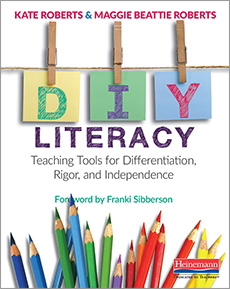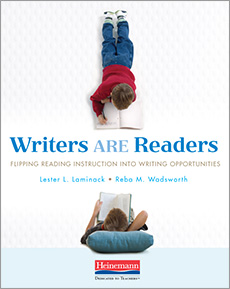In both my time in the classroom in large learning communities and then in supporting readers reading intervention, I continually worked to differentiate for learners. No two learners are ever the same, and as Kate and Maggie remind us this can be challenging to balance in classrooms. Using tools like charts, demonstration notebooks, micro-progressions, and bookmarks help to not only make learning more concrete for students but also allow for greater differentiation and personalization. These tools help to develop "a sustainable practice that meets kids' needs (p. 72). Working to meet the variety of needs in a classroom takes thoughtful practice. The authors help us to see how tools can not only support students who need help, but they can also extend learning for students who need more push.
These chapters reminded us to:
- Look for signs tools are working: use, struggle, shifts, growth, engagement
- Look for signs tools can be removed: automaticity, awareness
- Build effective tools: co-create; use popular culture, metaphor, kid language, space, color, branding
- Be intentional about location
I created this visual representation of key points from the reading.
In Closing
I can't thank the #cyberPD community enough for all they have shared during this event. I'll be weeks browsing through the posts and will return throughout the year for the many ideas that have been shared.
Thanks again to this amazing cast of #cyberpd! You are inspiring! Don't forget our final chat! Next Wednesday NIGHT! pic.twitter.com/aw0bSVMHlP— Michelle Nero (@litlearningzone) July 21, 2016
My Past Posts
Becoming Strategic Chapters 3-4
DIY Literacy Tools Chapters 1-2








